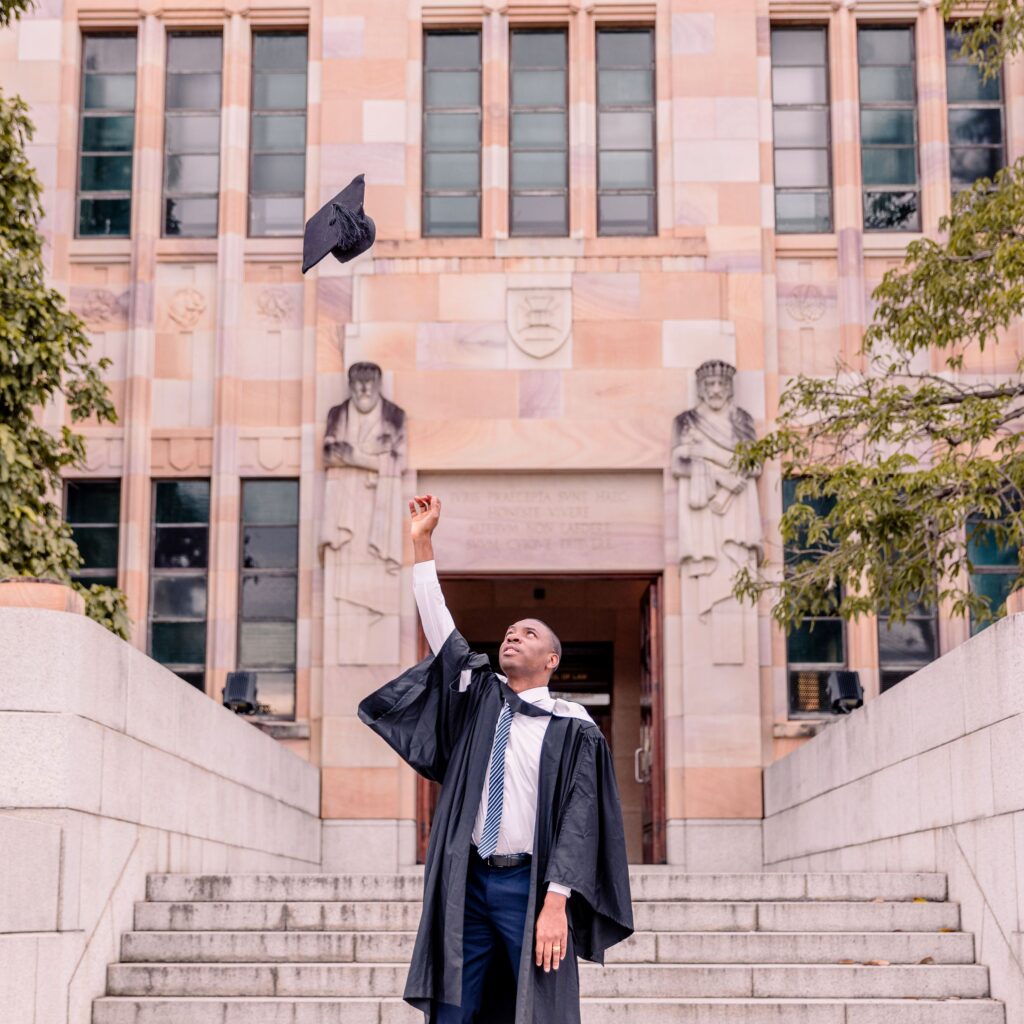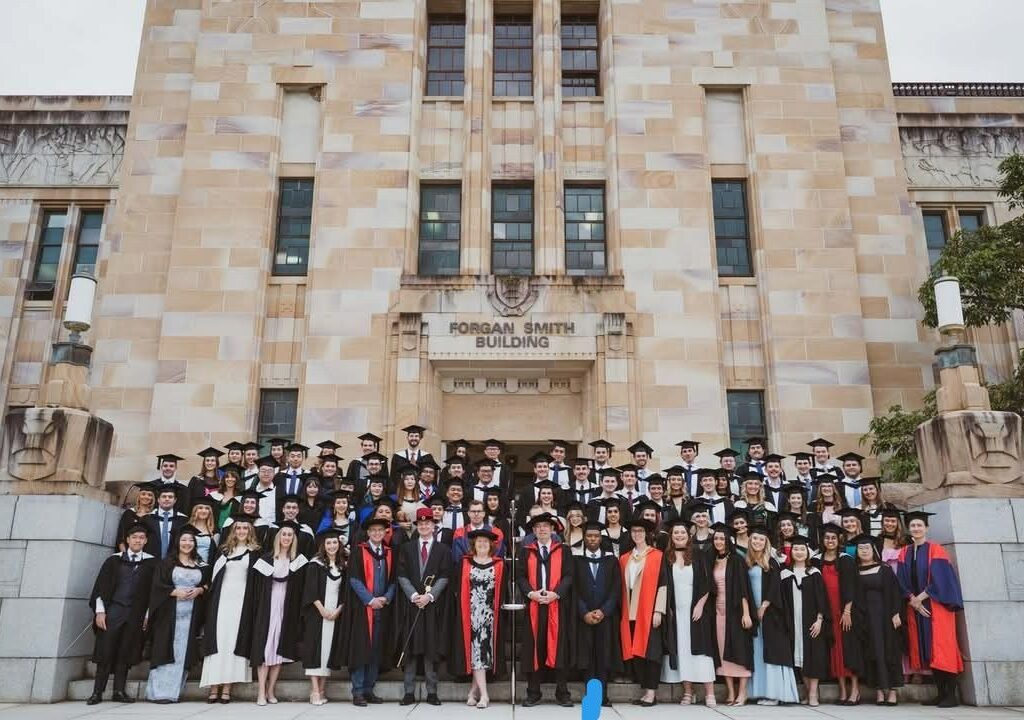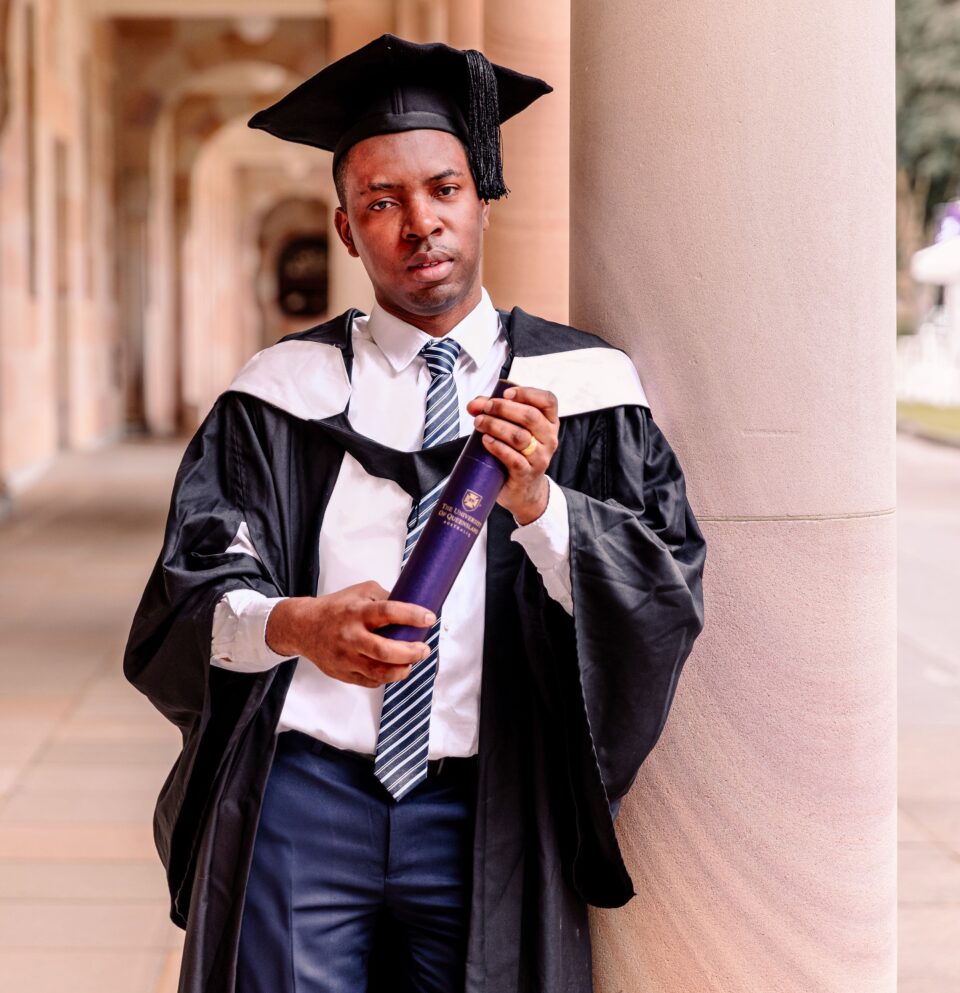By Alfred H. W. Brownell UQ Law Honors Grad, The Author
This is more than a personal story. It breaks the bounds of a family affair to an impersonal narrative that strikes chord with many others who have defied the odds to chart a niche in intrepidity.
On July 15, 2025, I will don my cap and gown and walk across the stage at a University of Queensland ceremony to receive my honours law degree from the TC Beirne School of Law.
For many, a degree marks a personal milestone. But for me, it signifies something far deeper: the rekindling of a multi-generational legal legacy nearly lost to history, war, and exile. It is the next chapter in a powerful legacy that spans more than four generations, several continents, and a family’s unbroken commitment to a fierce pursuit of justice.
My journey to this point has been anything but conventional. I left Liberia as a scholar in pursuit of postgraduate studies, but life took the unexpected, my family faced death threats and intimidation.
For me, I carry not just the scars of persecution but also the unshaken dream of becoming a lawyer, a dream deeply rooted in the remarkable history of my family.

Alfred’s Graduation
On July 15, 2025, I will stand tall as the first great-grandson and grandson in my bloodline to graduate from one of the world’s premier law school which constantly achieves top 1% ranking internationally.

UQ Law Class of 2025 – Alfred in from row surrounded by law Professors and Classmates
But my story like the law itself and for those who know me is layered with resilience and the relentless pursuit of justice.
A Family Legacy Forged
Many from the late 1800s and 1900s know the Rocktown Maryland-based Brownell family for its legacy in Democratic politics and the law, but several members of our well-known family have something else in common: For nearly 132 years, generations of the Brownell’s have been educated across different and gone on to impact the world and Liberia as Lawyers, Judge, Physicist, Civil Engineers, Activists and appointed officials.
Over a century ago, my great-grandfather Cllr. Nete Sie Brownell Sr. became the first in our family to attend law school. A brilliant legal mind, he rose through the ranks to become Magistrate, Circuit Judge, Solicitor General, and eventually the Attorney General. At a time when the law was often used as a tool of oppression, the Brownell commission report shows my great grandfather wielded it as an instrument of justice.
But justice was elusive. In the 1930s, when systemic exploitation and forced labour gripped the country during the Great Depression and the Fernando Po Crisis, Liberia provided labourers to Spain, France, and England. It was my great grandfather who challenge this acrimony in colonial repression and slavery at the League of Nations which was later dissolved on April 19, 1946.
Though the international community at the time refused to call it slavery outright, it condemned the abuses as its moral equivalent. The legal challenge led to a historic reckoning and ultimately led to the resignation of the Charles D. B. King entire government. For many who don’t know, this was a rare and powerful moment in Liberia and global legal history.
Next down the line was my great granduncle, Cllr. Lincoln Sie Brownell Sr who rekindled and continued the law dream, becoming a nationally acclaimed lawyer, earning accolades for his legal acumen and fearless advocacy.
My Dad, global and renowned Liberian environmental lawyer Alfred Lahai Brownell eventually followed in my great-grandfather’s footsteps. However, by 2016, he almost lost his life defending the rights of forest communities.
He is a distinguished scholar in residence at Northeastern University School of Law and in 2019 was awarded the Green Nobel ‘Goldman Environmental Prize for Africa’ in recognition of his work for environmental protection stopping palm oil companies from bulldozing over rural communities’ land rights and clear-cutting more than 500,000 acres of forest.
He continued to work tirelessly using his legal education to combat land grabs, deforestation, the climate crisis, destructive investment, pollution, unjust labor practices, and the commodification and exploitation of indigenous land.
He continues to serve with distinction and etched his name in the annals of history including mentoring the next generation of human rights defenders across the globe.
Few hours from now, I’ll become the first great-grandson to follow in those legal footsteps not only to listen to stories of injustice but also use my education as a blueprint to fight it.
After falling ill, the idea of studying law was never an option and if I should be honest it seemed like an impossible dream. Yet something deeper stirred me toward this goal in the echoes of my ancestors’ courage.
To turn his challenges into a passion for helping society’s most vulnerable I applied and was among 21 students who were awarded the T. C. Beirne School of Law scholarship in 2021 and 2023.
The Next Generation
Now, as I prepare to graduate, I reflect not just on what I’ve accomplished, but on what lies ahead. I want my children and all young Liberians to know that law isn’t a closed door. It’s a bridge. A way to find your voice again when it’s been taken from you.
To the young people back home I hope my story will inspire you that this fight for justice and the rule of law is not for the privileged alone. Your history should not a barrier; use it as a foundation to put yourself forward. I chose to study law because I believe it can be a lifeline especially for those who have none.
My journey is not just about personal triumph. It’s a living testament to the power of purposeful legacy of endurance and justice.
As I prepare to step into the legal profession, I carry with me not only the hopes of my ancestors but the dreams of generations to come. And if history is any guide, they’ll rise too. Perhaps even higher.
My message is clear: Justice doesn’t begin in courts. It begins in families, in courage, and in choosing to speak when others stay silent. If I can make it here, carrying the weight of history and hope, then so too you can.
About the Author
Alfred H. W. Brownell is a Writer, an Environmental Sustainability Researcher, and a Concern Citizen.
Disclaimer: This article is a commentary, intended for general educational purposes only. The views and opinions expressed in this article are those of the author and do not necessarily reflect the official policy or position of any institution or political party, nor the official position of any research institutions in which they are affiliated.

